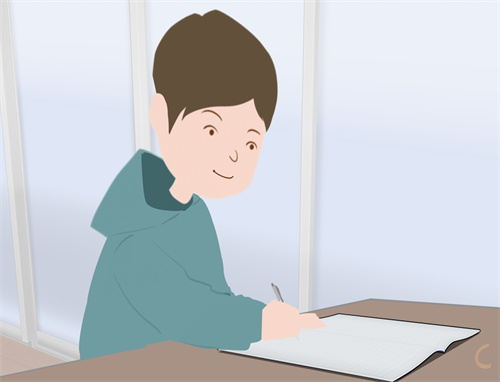虽然学习很忙碌,很辛苦,但我并没有觉得疲倦,我觉得学习很快乐。看到了自己有了优异的成绩,我会想:学习是幸福的,当历尽了千辛而获得成功时,学习的果实是那么的甜啊!以下是小编给大家整理的高二英语知识点,希望能帮助到你!

高二英语知识点汇总
1. mean to do sth.打算做某事
mean (doing) sth 意味着做某事
be meant for打算给予……,打算做……用
(had) meant to do 本来打算做而实际上未做
by all means 可以,当然行,没问题
by means of 借助……的手段;依靠……方法
By no meant绝不,一点儿也不
2. take place发生
3. do harm/good有害处/好处
4. go to clean graves扫墓
5. in memory of 为了纪念……
in celebration of为了庆祝……
in favor of赞同……
in praise of为了表扬……
6. in the shape of 以……的形状
7. offer sb sth=offer sth to sb提供某人某物/某物给某人
offer to do sth主动提出做某事/建议将做某事
offer (sb) money for sth(向某人)出价多少买某物
offer (sb) sth for money(向某人)开价多少卖某物
8. dress up装扮
9. play a trick/tricks on=play a joke/jokes on开玩笑
10. the arrival of……的回归
11. gain independence获得独立
12. the agricultural work农活
13. decorate… with用……装饰……
14. win awards赢得奖品
15. admire the moon赏月
admire sb for sth因为……羡慕某人
16. look forward to doing sth期待做某事
17. day and night日日夜夜
18. colourful clothing of all kinds各种各样的漂亮的衣服
19. as though/if好像
20. be covered with被……覆盖
21. have fun with取乐
22. a worldwide holiday全世界的节日
23. turn up/away/back/down/in/off/on/out/over/to出现/拒绝/原路返回/关小,拒绝/上交/转变;关掉/打开/证明是;生产/翻转/转向;求助于
in turn轮流/反过来
take turns to do sth/in doing sth轮流做某事
do sth by turns轮流干某事
24. laugh at 嘲笑
make fun of取笑
25. keep one’s word/promise守信用,履行诺言
26. hold one’s breath屏住呼吸
27. It is obvious that很明显……
28. wipe the table擦桌子
29. fall in love with sb爱上某人
be in love相爱(与表示一段时间的动词连用)
get married/be married to sb/ marry sb与某人结婚
30. once a year一年一次
31. set off出发
set about着手开始
set…against把……与……比较/对比
set back 使……后退,阻碍,拨慢(钟表)
set forward前进,促进,拨快(钟表)
set down 写下
set out动身,出发;摊开,陈列;表述(理由)
32. throw…away扔掉
33. remind…of 使……想起……
remind sb to do sth提醒某人干某事
34. forgive sb原谅某人
35. a kind of +n.(s./pl.)+V(单)一种
kinds of +n.(s./pl)+V(复)各种各样的
36. hold back阻止,退缩
hold on to 抓住,不卖掉,不放弃
hold on 等一等,请稍等,坚持,忍受着
hold up 举起,拿起,延误,使停顿
hold out伸出
37. starve for渴望,缺乏
starve to death饿死
38. important religious festival重要的宗教性节日
39. light lamps点灯
40. apologize to sb for (doing) sth因某事向某人道歉
=say sorry to sb for sth
=make/offer an apologize to sb for (doing) sth
apologize to sb for sb替某人向某人道歉
高二英语知识点大全
1. The French writer Jules Verne wrote famous books, such as 20, 000 Leagues Under the Sea and Around the World in 80 days.法国作家儒勒?凡尔纳写了很多书籍,比如《海底两万里》和《八十天环游地球》。
(1)Jules Verne 儒勒?凡尔纳。法国科学幻想家和冒险小说家。
(2)such as
①like; for example 像;诸如;例如 eg:
Wild flowers such as orchids and primroses are becoming rare.
兰花和报春花之类的野花越来越少了。
②everything that凡是 eg:
Such as remains after tax will be yours when I die.
我死后全部财产除了交税以外全部给你。
(3)league [li g] n.
① former measure of distance (about 3 miles or 4.8 km) 里格(旧时长度单位,约3英里或4.8公里)。 eg:
The horse can run 50 leagues a day. 这匹马一天能跑240公里。
②group of people or countries combined for a particular purpose 联盟;同盟 eg:
The League of Nations is an international organization.
国际联盟是一个国际组织。
2. Try the small science quiz below to see if you know any better. 试试下面的科学小测验,看看你是否了解得多些。
any better 更好
any [′anI] adv. (used with faster, slower, better, etc. , in questions and after if/whether 用于疑问句中,与faster, slower, better等连用;用于if/whether之后)to any degree; at all在任何程度上;丝毫 eg:
I can’t run any faster. 我无法跑得更快了。
Is your father any better? 你父亲有所好转了吗?
3. What is the distance from the earth to the moon? 地球到月球的距离是多少?
(1) distance [′dIst ns] n. [C, U]
① (amount of) space between two points or places 距离;间距
A good cyclist can cover a distance of over a hundred miles a day.
自行车骑得好的人一天可以行驶一百多英里。
②distant place or point 远处;远方 eg:
At a distance of six miles you can’t see much.
距离六英里以外的东西很难看清。
(2) at a distance (稍)远处,表示一定的距离,近距离或用以说明具体的距离,其不定冠词a有时可以略去或改用some。 eg:
This picture looks better at a distance. 这幅画远看就好些。
(3) in the distance (far away) 在(较)远处,强调距离之远。 eg:
They were expecting to see in the distance some signs of the enemy.
他们期望着发现远处敌人的迹象。
(4) keep sb. at a distance 与某人保持一定距离;不愿与某人亲近 eg:
He always keeps anyone at a distance. 他总是不愿与任何人亲近:
4. How fast does a balloon travel? How about an airplane? How about a space shuttle?
一只气球能走多快?一架飞机呢?还有一架航天飞机呢?
(1)ballon [b ′lu n] ①n. brightly-coloured rubber bag that is filled with air, used as a child’s toy or a decoration(用作玩具或装饰品的)气球 eg:
They bought their son a lot of balloons yesterday.
昨天他们给他们的儿子买了很多气球。
②v. swell out like a balloon 如气球一般膨胀 eg:
Her skirt ballooned in the wind. 她的裙子让风吹得鼓起来了。
③go ballooning 乘气球 eg:
They like to go ballooning at weekends. 他们周末喜欢乘气球玩。
(2)How/What about …?……怎么样?常常用来打听消息或提出建议,征求对方意见,后接名词,代词或动名词。 eg:
How about your mother? Does she feel better today?
你妈妈怎么样听?她今天觉得好点儿了吗?
(3)space shuttle—spacecraft designed for repeated use, eg between earth and a space station or the moon 航天飞机;太空穿梭机 eg:
I have never seen a space shuttle. 我从未看见过航天飞机。
高二英语知识点总结
1.做主语:-般来说,不定式和动名词成份相同时,表示客观性、一般性行为为多用动名词表示,而表示一次性、具体性行为则多用不定式。
Looking after children is her job.
To clean the classroom is his job today.
2.做宾语:
I like swimming, but I don't like to swim today because I don't feel well.
(1).有些动词只能接不定式做宾语,这些动词接上不定式,含有明显的主观性和将来性意义。如:help,hope,ask,refuse,decide,promise,wish,pretend,expect,arrange,learn,plan,demand,dare,manage,agree,prepare,fail,determine,offer,choose,desire,elect,long,(happen,seem),等等。
He refused to speak on the radio.
He desired to see you.
(2)..有些动词只接动名词做宾语,这些动词接上动名词,含有明显的"依据往事或经验来作出理解和判断"的意思。mind,finish,enjoy,suggest,permit,appreciate,consider,miss,dislike,keep(on),avoid,permit,imagine,risk,escape,admit,stand(忍受),allow,forbid,excuse,等等。
短语动词:give up,put off,look forward to,feel like,insist on,object to,prevent…from,set about,can't help,be/get used to等
短语:be worth doing,be no good doing,be no use doing,be busy doing等
The mother did agree to let the boy risk swimming across the river.
She can't stand having nothing to do at home.
His wife doesn't allow smoking inside the room and often advised him to give up smoking.
All the family insisted on my staying with them a few days longer.
It's no good learning without practicing.
I'm looking forward to hearing from you soon.
She doesn't feel like eating anything,being ill for a few days.
(3).有些动词后面既可接不定式,又可接动名词,其意义基本相同,区别不大。如;like,love,hate,delay,continue,attempt(企图),afford(提供),prefer.omit(省略),begin,start.
The Einsteins, however, could not afford to pay for(or:paying for)the advanced education that young Albert needed.
I prefer staying (to stay) at home on Sunday.
注意:begin和start本身为进行时,或后面动词为心理变化意义的动词时,须接不定式。
When we came in, they were beginning to have supper.
After his explanation, I began to understand it / realize that I was wrong.
(4).有些词后面既可以接不定式.亦可接动名词,但其意义有很大区别,须特别注意:
A.remember,forget,regret接动名词,表示完成意义(=having done),接不定式,表示将来意义:
Please remember to bring me the book I want next time.
I remember seeing her (=having seen her) somewhere before.
Don't forget to write to me soon.
I never forget visiting (=having visited) them for the first time.
I regret missing that good film last week.(后悔干……事)
I regret not taking (not having taken) your advice.
I regret to say I can't take your advice. (遗憾=be sorry)
B.mean:mean to do=want to do打算,想要……;mean doing:意味着,就是
I am sorry, I didn't mean to hurt your feelings,
I meant to call on you, but I was so busy.
Learning a foreign language doesn't mean just working in class.
C.stop:stop to do停下来,要干另一件事,不定式作目的状语;stop doing停止干……,动名词作宾语。
After some time, they stopped walking and had a rest.
After walking some time, they stopped to have a rest.
D.try:try to do,努力,试图干……事;try doing:试着干……事
He searched everywhere and tried to find his key.
He came to the city from the countryside and tried to find a job.
The mother is out and the boy had to try cooking for himself.
They tried to succeed and tried doing their experiments again and again.
E.want,need,require接动名词表示被动意义,表示"需要、该……";接不定式,表示"想,要干……"
The room wants cleaning.
The bike requires repairing.
These young trees require looking after.
The matter needs thinking over.(=to be thought over)
A Mr. Wang wants to see you.
You don't need to leave so early.
F.go on:go on to do继续干和原来不同的另一件事,不定式作目的状语。
go on doing继续干原来同一件事,动名词作宾语。
After a smoke,he went on telling us that interesting story.
After writing his English composition he went on to work out his maths problems.
G.动词advise,allow,permit,forbid后面接单宾语时用动名词,接复合宾语时用动词不定式。
Doctors advise giving up smoking to benefit one's health.
The doctor advised him to give up smoking so as to improve his health.
She doesn't allow (permit) smoking in her room.=She doesn't allow (permit)anyone to smoke in her room.
Parking is forbidden here.=Any cars not permitted to park here.
3.做宾补:
不定式可以表示一次性、具体性行为,以及将来意义的行为。现在分词可以表示当时正在发生的进行意义的行为,亦可表示-个持续时间的延续性的行为动作。过去分词可以表示完成意义的行为或状态,及物动词的过去分词亦有被动意义,不及物动词的过去分词仍是主动意义。
When I came in, I saw her dancing happily.
I often hear her sing songs in English in her room.
They had the lights burning all night long.
I saw Li Ping pass by and enter the next room just now.
The mother will have the doctor examine her son again.
Tomorrow I'll have my hair cut.
When I got home I found the window broken and the thief gone away already.
When they returned to their hometown, after an absence of twenty years, they found everything changed.
4.做表语:
不定式和动名词做表语解释主语内容,且可以和主语颠倒,意思仍然通顺,回答what的问题。它们有时存在经常性和一次性行为的区别,分词做表语表明主语的性质、特征和状态,不能和主语颠倒,可以回答how的问题。
Her job is cleaning offices.(What is her job?) (Cleaning offices is her job.)
Our job today is to clean the office.(=To clean the office is our job today.)
The news is very exciting.(How is the news?)
They are very tired after a long walk.
The door is locked now.
The children are well dressed these days.
5.做定语:
不定式做定语与先行词有动宾、主谓和解释先行词内容等关系。在时态上常是将来意义,现在分词做定语是现在时或进行时态意义;过去分词做定语则是完成时态意义。此外,不定式做定语时只能后置,不可前置,而单个分词做定语可前置,分词短语做定语则须后置。动名词做定语,须前置,且要重读,它表明先行词的用途。而分词做定语表明先行词的性质、特征和状态。
a swimming boy=a boy who is swimming
a swimming pool=a pool for swimming
the boiling water=the water that is boiling
drinking water=water for drinking
Today I have a letter to write.
Please find a man to help us.
It is a good chance to practise your spoken English.
I like reading books written by Lu Xun.
The woman standing over there is our English teacher.
The house to be built (=which will be built/which is to be built) next year will be our new library.
The house being built (=which is being built) now will be our new library.
The house built (=which was built) last year is our new library now.
6.做状语:
不定式和分词做状语各有不同分工。动词不定式多做目的、结果和原因状语,且多放在句末;分词可以表示时间、原因、条件、让步、方式状语,多置于句首,做伴随状语,多放在后面。单独的动名词不能做状语,在介词后形成介词短语,从而做状语。
(1).目的状语:通常有不定式表示,由于不定式的客观性和将来性特征。不定式前还可加上in order,so as来加强说话的口气。但so as to通常不用于句首。
The Smiths have gone to London to spend their holidays.
I came here (in order/so as) to hear the report.
In order to(不用so as to) see better, we took front seats.
(2).时间状语:分词作时间状语相当于时间状语从句。现在分词作时间状语一般位于句首,表示的动作和谓语动词的动作同时发生,有时现在分词前可以加上时间连词。如果分词动作发生在谓语动词之前,用现在分词的完成体形式。过去分词作时间状语与谓语动词构成同时性和被动意义。分词前有时加上时间连词。
Arriving (=When he arrived) at the bus stop, he found his sister there.
Waiting (=When I was waiting) to see the doctor, I met with a friend of mine.
Having (=When we have) made full preparations, we are ready for an examination.
Having (=When he had) finished his homework, he went to bed.
After finishing his homework, he went to bed.
Seen (=When the town is seen) from the hill, the town looks more beautiful.
Locked (=When he was looked) up in the room, he found himself isolated from the outer world.
When asked to make a speech, he said he was glad to do so.
Once recovered, he went all out to do his work.
(3).原因状语:不定式作原因状语往往用于形容词之后,这些形容词通常是happy, sorry, fortunate, angry, glad, ashamed, discouraged, delighted, frightened, shocked等。分词作原因状语相当于原因状语从句。一般位于句首。
I am sorry to hear that you are not well.
I'm very sorry to have kept you waiting so long.
We are greatly delighted to have a native as our guide.
Being (=Since he was) ill all last year, he lived in a sanatorium.
There being no enough money, he couldn't buy the dictionary that he wanted.
Having (=Since they had) been asked to stay, they couldn't possibly leave right away.
Moved (=As he was moved) by the heroic deeds of the PLA man, he burst into tears.
(4).条件状语:通常用分词来表示,相当于条件状语从句。一般位于句首。
Turning (=If you turn) to the left,you will see the post office.
United (=If we are united), we stand; divided (=if we are divided), we fall.
Given (=If he had been given) more time, he would be able to do better.
(5).结果状语从句:不定式作结果状语通常用于so+形容词或副词+as to,such+名词+as to,too…to,enough to和only to等结构。
现在分词作结果状语表示谓语动词的结果。
He arrived late to find the train gone.
I worked late into the night, only to find I had not finished half of the job.
He was so friendly as to be always helpful to his neighbours.
His is such a sad story as to arouse out sympathy。
I ran faster than ever, reaching the schoolyard quite out of breath.
The man died young, leaving nothing but debt.
(6).让步状语:通常有过去分词来表示,而且前面通常有表示让步意义的though。
Though wounded, the soldier managed to get to the village safely.
Though warned of the danger, he still went skating on the thin ice.
(7).伴随或方式状语:分词作伴随状语通常位于句尾,表示谓语动词正在所处主动或被动的状态。
Chinese businessmen, taxi drivers and students talk with them using English.
She came running towards us.
They walked along the streets, talking and laughing.
He went into the house, followed by some children.
He continued to walk up and down, lost in thought.
高二英语必拿下的知识点相关文章:
★ 高中英语语法知识点整理总结
★ 高中英语知识点总结与归纳
★ 高中英语好词好句考点必备,背下拿高分!
★ 高三英语语法知识点
★ 高二英语必修五单词表
★ 助动词英语语法知识点与语法填空必背的短语
★ 高中英语语法总结大全
★ 高二英语完形填空重点高频词大全
★ 人教版英语高中必修六知识点
★ 外研版高中英语必修一知识点






